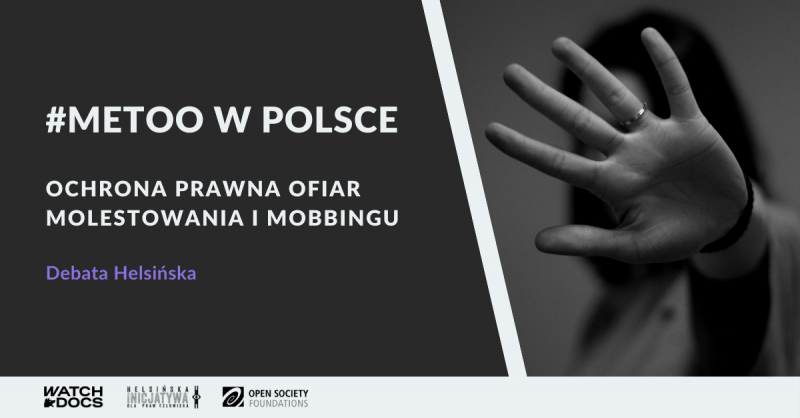Debate: #MeToo in Poland. Legal protection of victims of harassment and mobbing
25 November was marked by the UN as the International Day for the Elimination of Violence against Women. On this day we invite you to participate in the debate devoted to the problems of mobbing and harassment.
The #metoo movement has led not only to a wide-ranging global debate on sexual harassment, but also to a kind of generational change in the perception of the problem. It has contributed to achieving a clearer identification of what behaviors categorically do not find social consent and, above all, granting a chance for victims to finally be heard.
Polish law classifies sexual harassment alongside mobbing as a broader category of discriminatory behaviour, the essence of which is to violate the most elementary values such as dignity and privacy. Cases of bullying and sexual harassment occur both at work and at school, during studies and in other circumstances. In Poland, as in other countries, particularly clear and firm voices are being heard from artistic circles. The cases of the Bagatela Theatre and the Centre for Theatre Practices "Gardzienice" have reverberated across Poland. The report prepared by the Helsinki Foundation for Human Rights shows that in as many as 31% of the examined artistic institutions violations took place.
What systemic changes are necessary in Poland to guarantee effective protection against mobbing and harassment? What guarantees, standards and regulations are necessary to strengthen equality and security in institutions and organizations? How do bullying and harassment fit into the broader context of discrimination and violence against women?
The starting point for the debate will be the report of the Helsinki Foundation for Human Rights "To be or not to be - employees of Polish artistic institutions in the face of the threat of bullying, harassment and sexual harassment", which will be published on 25 November.
The conversation will allow us to simultaneously look at the problem from various perspectives and in a broader context of other industries and environments.
The debate is an accompanying event of the 20th WATCH DOCS IFF. Human Rights in Film, which will start on December 4.
